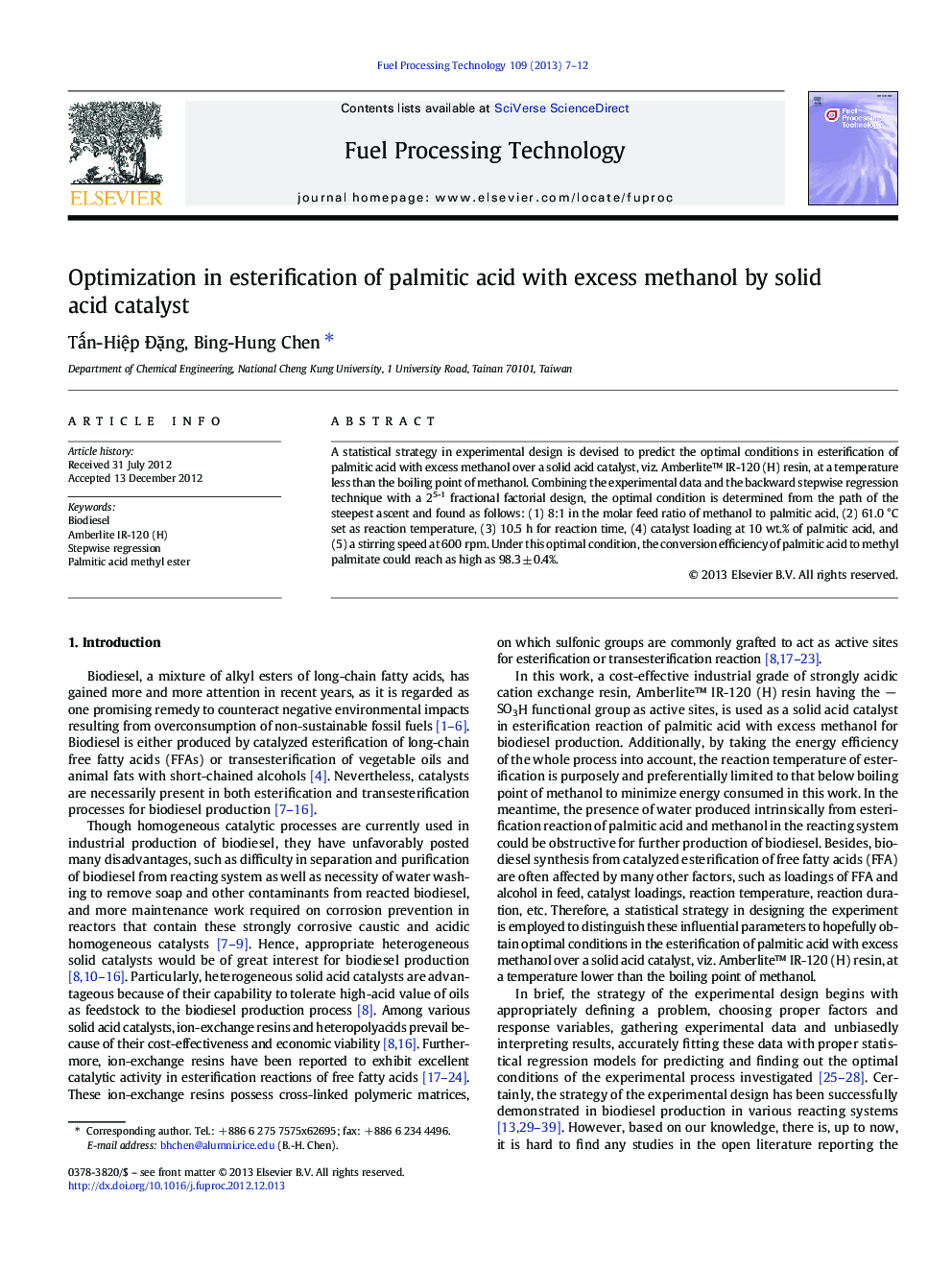| Article ID | Journal | Published Year | Pages | File Type |
|---|---|---|---|---|
| 210154 | Fuel Processing Technology | 2013 | 6 Pages |
A statistical strategy in experimental design is devised to predict the optimal conditions in esterification of palmitic acid with excess methanol over a solid acid catalyst, viz. Amberlite™ IR-120 (H) resin, at a temperature less than the boiling point of methanol. Combining the experimental data and the backward stepwise regression technique with a 25-1 fractional factorial design, the optimal condition is determined from the path of the steepest ascent and found as follows: (1) 8:1 in the molar feed ratio of methanol to palmitic acid, (2) 61.0 °C set as reaction temperature, (3) 10.5 h for reaction time, (4) catalyst loading at 10 wt.% of palmitic acid, and (5) a stirring speed at 600 rpm. Under this optimal condition, the conversion efficiency of palmitic acid to methyl palmitate could reach as high as 98.3 ± 0.4%.
► Backward stepwise regression with a 25-1 fractional factorial design for biodiesel production. ► Amberlite IR-120 resin can catalyze esterification of palmitic acid in methanol for biodiesel. ► The optimal condition in biodiesel production can be determined from the steepest ascent path. ► The optimal conversion efficiency of palmitic acid to methyl palmitate could reach 98.3 ± 0.4%.
